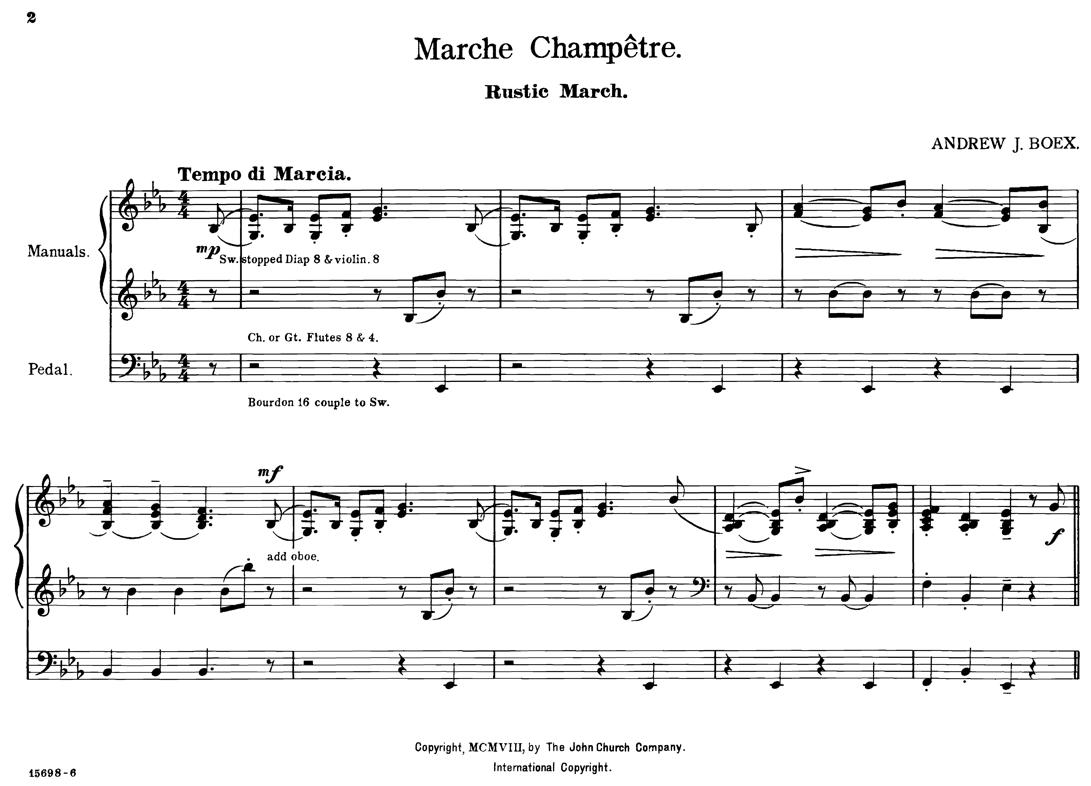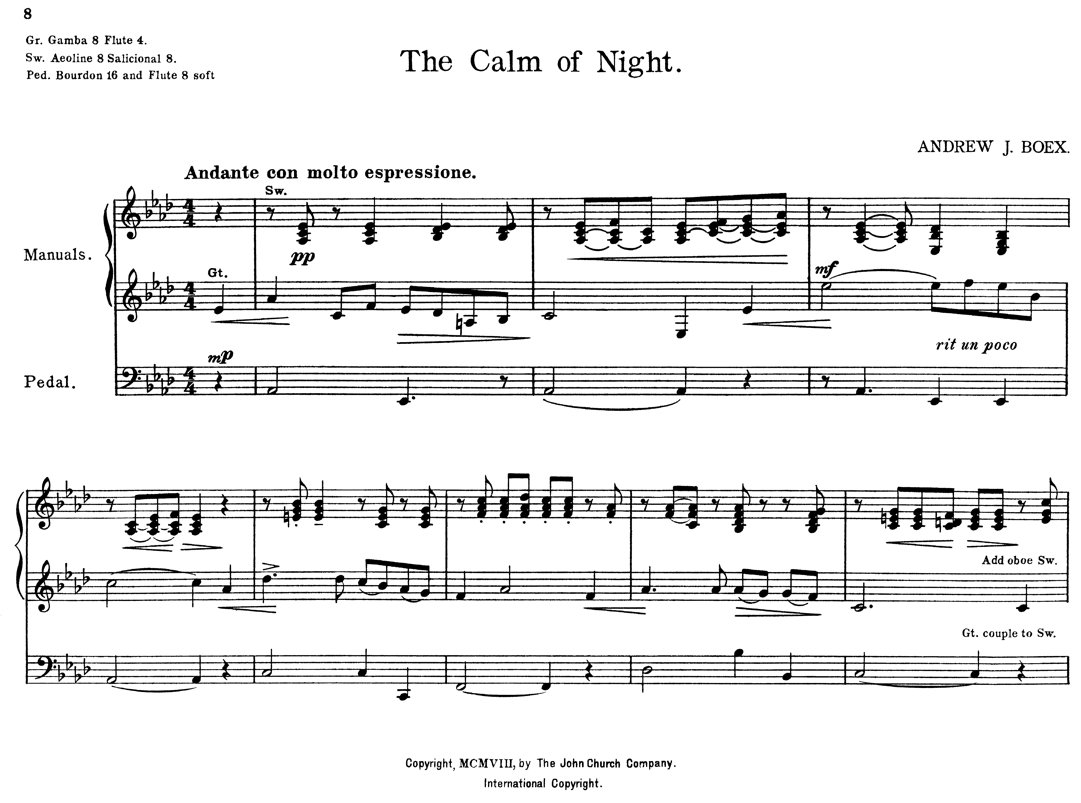This is a new printing of the two original editions on sturdy acid-free paper. “Marche Champêtre” (Rustic March)
and “The Calm of Night” were published separately in the same year (the year before his death), and I have combined them to save money. 12 pages.
Highest quality guaranteed. Size of music is
13.5" x 10.5". $10.00.
Andreas Josephus Johannes Boex (1859–1909)
was born in Eindhoven, Noord-Holland (Netherlands) as the second of nine children of Antonius (Antoon) W Boex (1833-1904), a banker and
cigar factory owner, and Henrietta Maria Catharina Anna Hoefnagles Boex (1830-1873). He emigrated with his family on the steamer Parthia
to Cincinnati, Ohio, in 1872. He married Louise C Mondary (1859-1938), a singer, with whom he had sixteen children.
Boex was organist and choirmaster at St Xavier Catholic Church in Cincinnati beginning in 1885 where he played a three manual Koehnken
& Grimm (1882); and his wife was a soloist. In 1903, he became organist at St Lawrence’s Church, Price Hill, Cincinnati, where
he played a III/78 register Hook & Hastings, Opus 1859 (1899). He returned to St Xavier in 1907. He taught music at St Xavier College,
piano and organ at St Joseph College, Cincinnati, joined the Elks Lodge, and directed several large choral societies. After a stroke
in 1907 with a slow recovery, he traveled with his son, Clement (1893-1955), to Belgium in July 1909 in order to undergo the Kneipp
Water Cure on the advice of his uncle, Rev Francois Boex, a priest in St Louis who had been formerly at St Xavier. Although he developed
a fever and had planned to return to Cincinnati in November, Boex died in Eindhoven on October 16, 1909. His obituary in
The
Cincinnati Enquirer on October 17, 1909, page 18, stated that “for years he had been an active spirit in developing the
highest musical culture of the city.”
In addition to his two organ pieces, Boex composed an operetta, “A Trip Abroad,” vocal, piano,
orchestral and choral music. He published some of his music under the pseudonyms of Seymour Hawthorne and Raoul Gabriel. He arranged
compositions by John Philip Sousa and Stephen Foster. The title of rustic or rural march indicates a playful, folk-like character that
lends itself to the creative imagination of the organist. Moderately easy.

